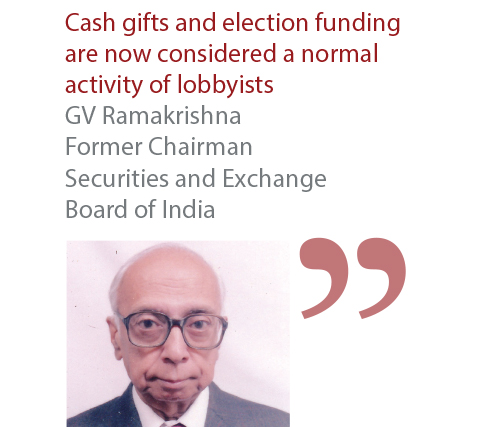Recent scandals have sparked debate over the need to regulate India’s unbridled corporate lobbyists
The infamous phone calls between corporate lobbyist Niira Radia and various Indian officials, caught on tape by the country’s Income Tax Department in 2008 and 2009, provide a rare insight into the nature of corporate lobbying at the highest levels of India’s government. Legislators, senior civil servants, legal professionals and journalists were all identified as targets of the lobbyist. The revelations were widely publicized and shook public confidence in the standard of governance in the country.
“The system of lobbyists in India has acquired an odour of bribery of legislators, officials and the media,” says GV Ramakrishna, a former chairman of the Securities and Exchange Board of India. “Cash gifts and election funding are now considered a normal activity of lobbyists.”
Dilip Cherian, the founder of Perfect Relations, a public relations company, argues that the majority of lobbying is above board and a legitimate part of the process of informed decision making. He concedes, however, that the practice has come to be viewed “in a negative light due to the aggressive agenda pushed by corporations or vested interests using not-so-above-board means to influence policymaking.”
You must be a
subscribersubscribersubscribersubscriber
to read this content, please
subscribesubscribesubscribesubscribe
today.
For group subscribers, please click here to access.
Interested in group subscription? Please contact us.



























